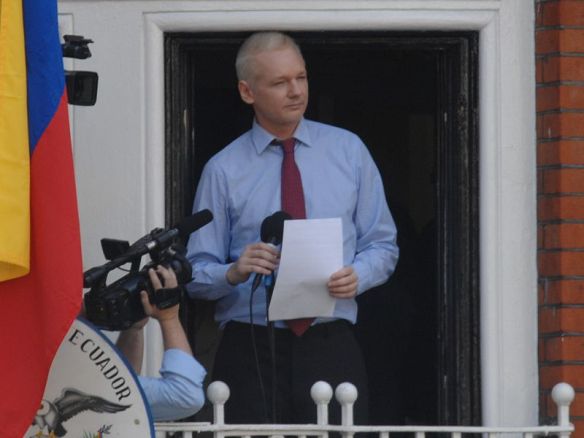Julian Assange: World patriot or vicious spy?

One of the modern phenomena of the modern age of electronics and computers has been that information can be transmitted near instantaneously, almost anywhere to the world. As a result of this, when the secrets of men in powerful positions become known, it’s not hard to let everyone know the truth of things. One individual, Julian Assange, has been dedicated to doing just this. Founded in 2006, his site, Wikileaks, has become an extremely controversial subject among government officials and citizens alike.
Some love Assange, seeing him as a patriot of the world, exposing the injustices and hidden corruption of the governments that run our little planet. Others look at him as a glorified spy, stealing secrets and letting our enemies know what’s going on beneath the surface of our government. Whatever your opinion of the man and his methods, he has certainly had an impact on what the average person now knows about how things are run in their government.
If you’ve been following Assange at all, you know that he’s gotten into quite a situation. As the story goes, while Assange was visiting
Some say he is avoiding a return to
His fears may to some sound paranoid, but they have much more grounding than one might think. Getting your enemy into trouble has been a classic political maneuver for thousands of years. In earlier centuries, this might involve tempting someone to have an affair and threatening to expose it. Today, we've gotten a bit more jaded, however. We need only look back to Bill Clinton and his own affair, which had only half of the

And so, the best way to bring someone down in today’s political climate is to attack them with something that is both illegal and socially abhorrent. Rape is one of those things in the modern era. By making people believe that Assange is guilty of the charges, it is possible to get him either jailed or extradited to be held accountable for the crimes he is accused of in the U.S. (namely, leaking Top Secret documents).
I’m not excusing the charges against Assange, but I think that most politically savvy people would agree that they should be taken with a healthy amount of skepticism. It’s no secret that the U.S. Department of Justice seriously wants this guy. They’ve even gone as far as to work with
In a recent development, the Swedish Supreme Court has been looking at the rape charges and the chairman had some things to say about the whole affair. He called the allegations against Assange “a mess” and was skeptical of the investigations into the crime. He also said that Assange should not fall under the jurisdiction of the extradition treaty with the
Of course, even being trapped in an Ecuadorian embassy, Assange still never lets anything deter him from his goals. In addition to keeping up with Wikileaks (though the bulk of the work has been handed off), he even plans on continuing his race for a seat in the Australian parliament.
In my own opinion, it is essential that there be people to watchdog those in positions of power and let the common folk know what’s going on. Without Wikileaks, many people might not know of the horrors that our country commits during wartime, the many backroom deals of politicians or the corruption that causes the need for so many secrets.
I am curious what everyone else thinks about Wikileaks and Assange. A detriment to the effective running of government or a necessary fighter for transparency within our society? By the way, if you've never seen Assange speak, I highly recommend watching this TED Talk in which he speaks about why our modern times need a site like Wikileaks.
Cute Wikileaks Graphic courtesy of Kasuga via Wikicommons
Julian Assange at embassy photo courtesy of Snapperjack via Wikicommons

0 comments